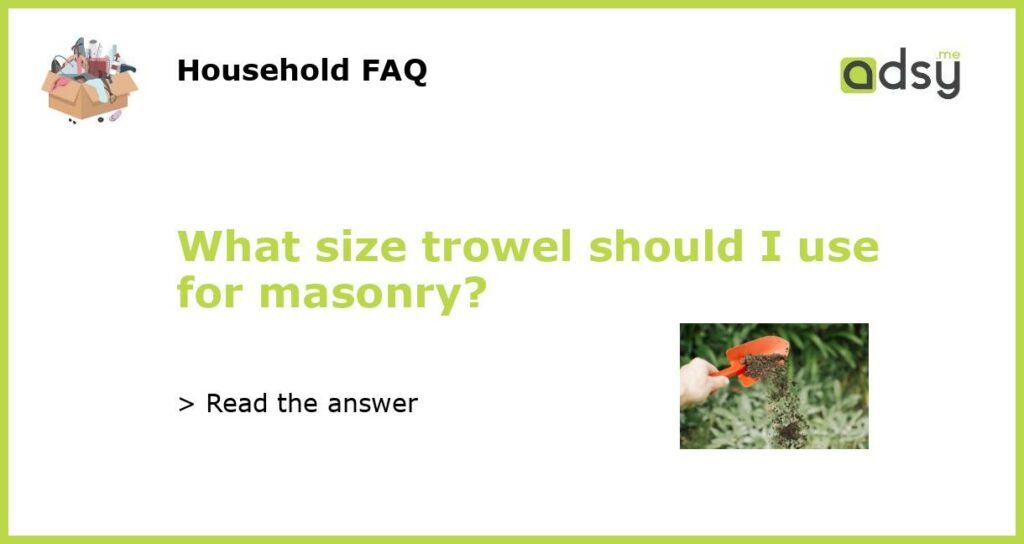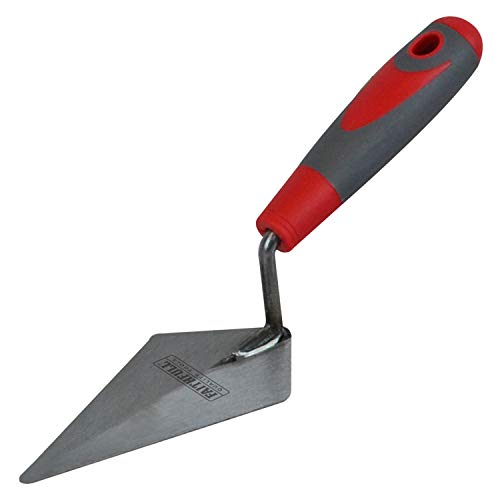Choosing the Right Trowel Size for Masonry
When it comes to masonry projects, one of the key tools you’ll need is a trowel. A trowel is used for spreading and leveling mortar, as well as for applying and shaping other materials like stucco or concrete. But what size trowel should you use? The answer depends on a few factors, including the type of masonry work you’re doing and the size of the tiles or bricks you’re using.
Trowel Size and Tile or Brick Size
One of the main considerations when choosing the right trowel size for masonry is the size of the tiles or bricks you’re working with. The trowel size refers to the dimensions of the notches or teeth on the trowel that create ridges in the mortar as you spread it. These ridges help ensure proper adhesion and coverage of the tile or brick.
For smaller tiles or bricks, typically up to 6 inches in size, a 3/16-inch v-notched trowel is often recommended. This size trowel allows for a consistent and even distribution of mortar. If you’re working with larger tiles or bricks, around 10 inches or more, you’ll likely need a larger notch size, such as 1/4 inch or 3/8 inch.
Type of Masonry Work
The type of masonry work you’re doing can also influence the size of trowel you should use. If you’re working on a project that requires greater bonding strength, such as a high-stress area or an outdoor application, a larger trowel size may be needed. On the other hand, if you’re applying a thin coat of mortar or adhesive, a smaller trowel size may be more appropriate.
It’s important to consider the specific requirements of your project and seek advice from professionals or manufacturers if you’re unsure about the right trowel size to use. They can provide guidance based on the specific materials and conditions you’ll be working with.
Additional Factors to Consider
While the size of the tiles or bricks and the type of masonry work are two key factors, there are other considerations to keep in mind when choosing the right trowel size for your project. The consistency and texture of the mortar also play a role in determining the trowel size.
If the mortar is too stiff or dry, a smaller trowel size may be suitable for better coverage and adhesion. On the other hand, if the mortar is too wet or sticky, a larger trowel size can help compensate for the added difficulty in spreading the material.
Additionally, the size and depth of the trowel itself can vary, and choosing the right handle size and grip style can improve comfort and control during use. It’s worth considering these factors when selecting a trowel for your masonry project.
Choosing the right trowel size for masonry is an important factor in achieving a professional result. The size of the tiles or bricks, the type of masonry work, and the consistency of the mortar all play a role in determining the appropriate trowel size. Consulting professionals or manufacturers can provide specific guidance based on your project’s requirements. By carefully considering these factors and selecting the right trowel, you’ll ensure proper adhesion, coverage, and overall quality in your masonry work.






